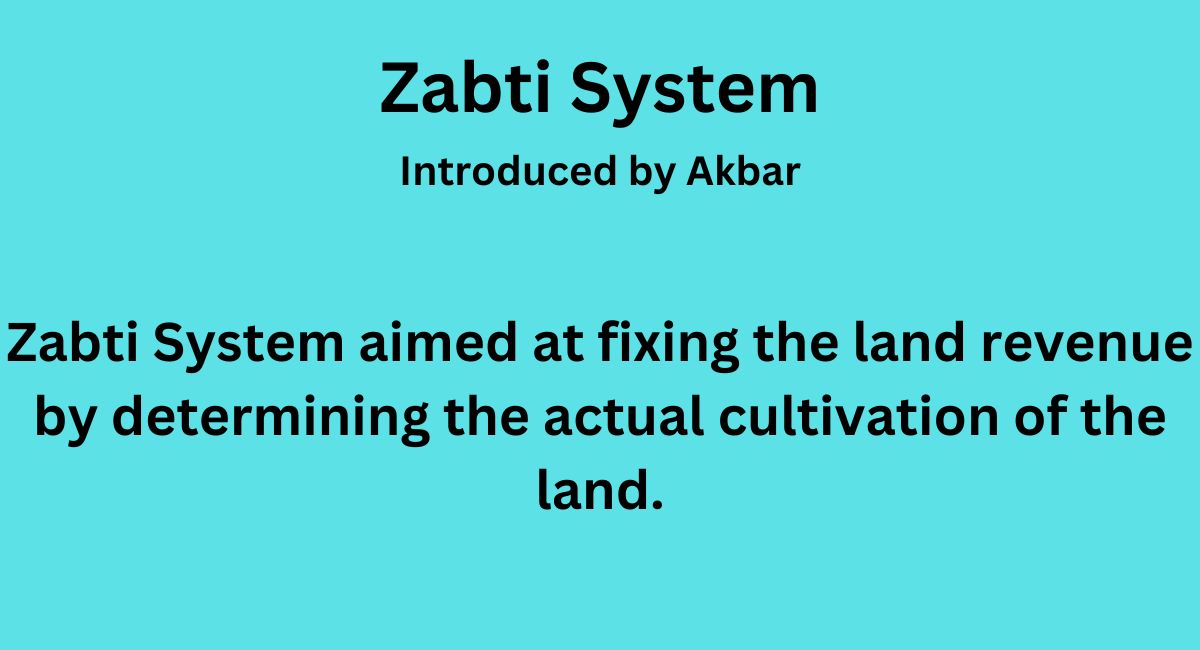Zabti System was a land revenue system introduced during the Mughal period in India. It was developed by the Mughal emperor Akbar as a solution to the inefficient revenue system of the previous rulers.

The term ‘zabti’ means ‘fixed’ or ‘systematic’. As the name suggests, the Zabti System aimed at fixing the land revenue by determining the actual cultivation of the land. The system classified the cultivators based on the land they owned and their ability to cultivate it.
"Under the Zabti System, the cultivators were assessed based on their landholdings and the average produce of the land.."

The land was measured using the gaz-i-ilaahi, a standard measurement unit used by the Mughals. The system ensured that the revenue was collected based on the actual production of the land, which was determined by the quality of the soil, availability of water, and the crop produced.
The cultivators were divided into three categories under the Zabti System.
- Those who cultivated their land themselves,
- Those who leased their land to others, and
- Those who worked as tenants.
The revenue was collected directly from the cultivators or tenants, and the land revenue rates were fixed for each category of the cultivator.
The Zabti System was a significant improvement over the previous revenue systems as it ensured that the revenue collected was fair and reasonable.
The System was also instrumental in promoting agriculture in the Mughal Empire as it provided incentives to the cultivators to increase their productivity. It was also responsible for the increase in the agricultural production of the Mughal Empire during the 16th and 17th centuries.
In conclusion, the Zabti System was a significant development in the land revenue system of the Mughal Empire. The system provided a fair and efficient method for collecting revenue, which was beneficial for both the government and the cultivators. The Zabti System played a crucial role in promoting agriculture in the Mughal Empire and helped in the growth of the economy.